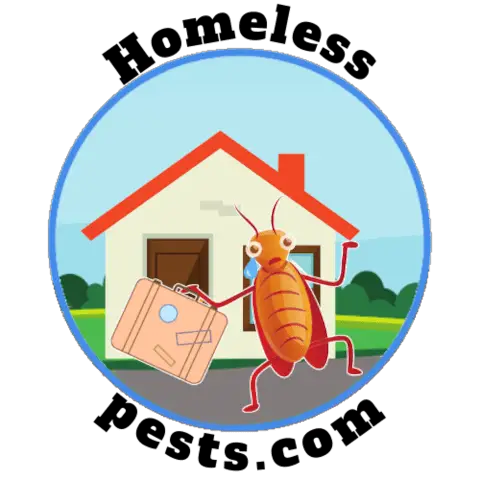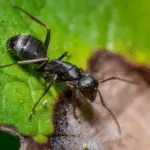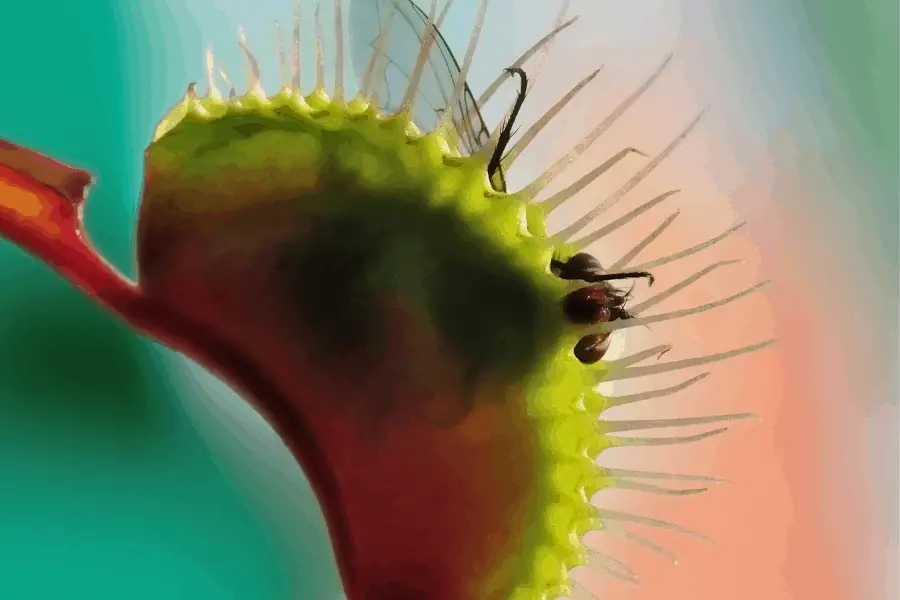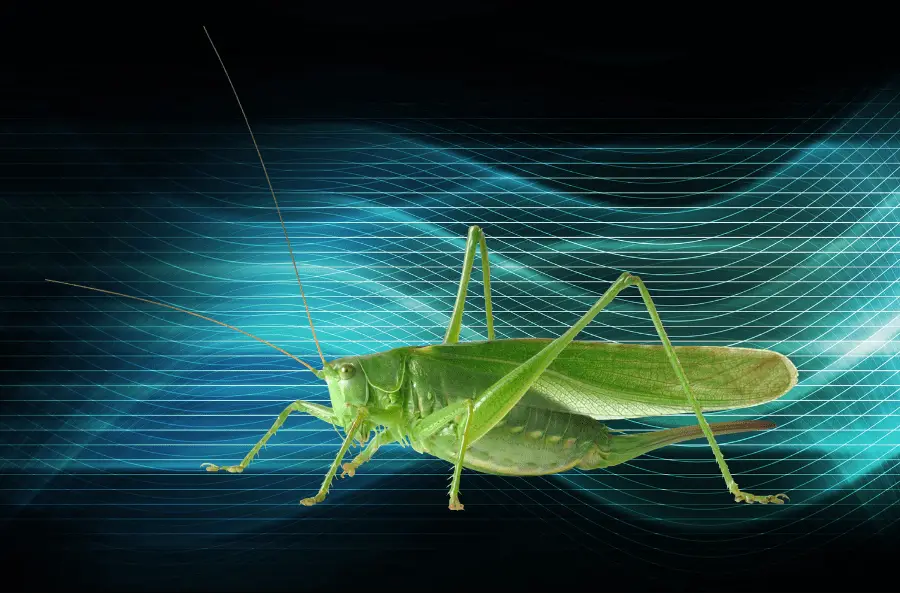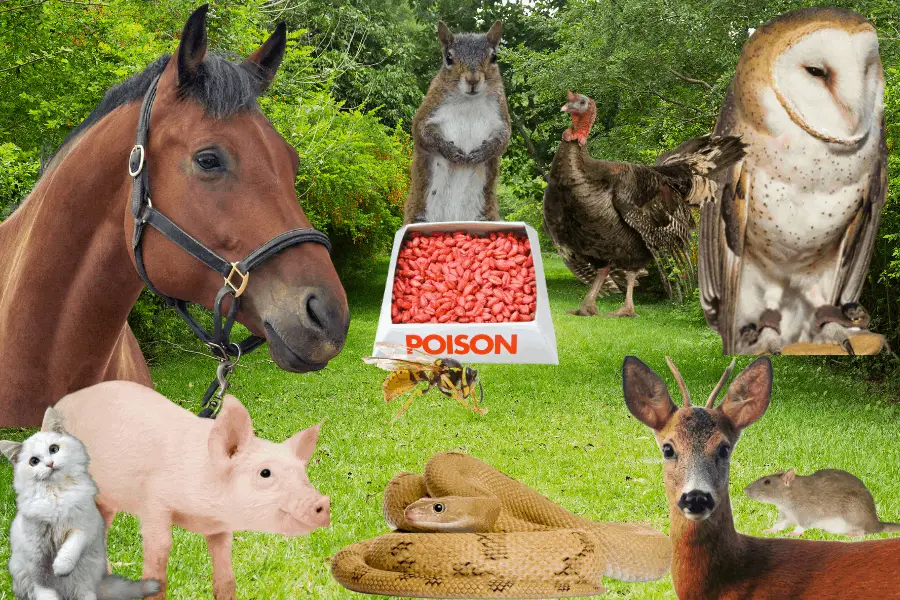
When most people see a pest, especially rodents, they automatically think of using rat poison to deal with them. But is rat poison limited to just rats? Or are there other animals that it can be used against or ones that would die if they accidentally ingested it?
Find out which of the following 50 animals rat poison would be effective on, if you actually wanted to use it on them.
Rodenticide versus Rodents
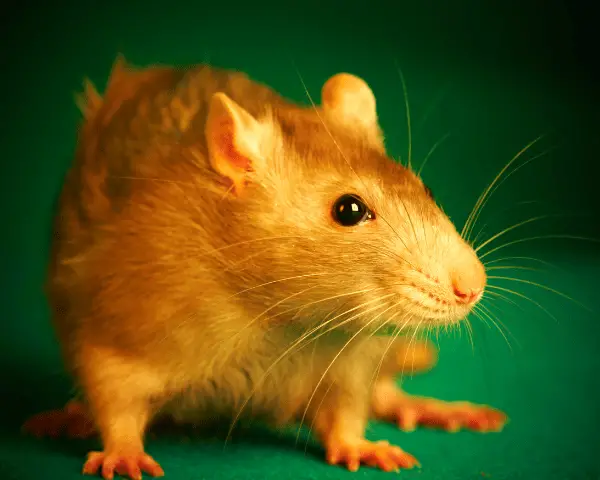
Please see my recommended pest control products for rodents
1) Will rat poison kill voles?
Rat poison will be effective against voles as it is designed to attract and react with a rodent’s biological system. All variants of rat poison will work on voles but the placement of bait traps will be important to ensure effectiveness. However, poisoning a vole is more than likely going to have a knock-on effect on the ecosystem.
Despite their cute appearance, voles are a real pest to gardeners where they are found in the wild. They are also a real threat to farmers who need their crops free of voles.
Voles will attack young plants, which can often stifle their growth or kill them altogether. They will also burrow into fields, which can result in a collapse of the soil and affect irrigation systems used to water crops or other flora found there as well. Their tunnels are often filled with sand that is then kicked up when they move around homesites causing an inconvenience for homeowners.
2) Will rat poison kill mice?
Rodenticide can be even more effective against mice than against other rodents such as rats. This is because mice only need to ingest a fraction of the amount larger rodents do before the rat poison becomes lethal. However, mice and rats have slightly different feeding habits so a specialized mouse poison would be better to use.
Rodenticide will have much the same effect on mice as rats depending on the brand used, resulting in internal bleeding, seizures, and ultimately death. Nevertheless, poison isn’t the fastest way to kill a mouse, snap traps hold that dubious honor.
3) Will rat poison kill guinea pigs?
Rat poison will certainly kill guinea pigs if they ingest it, although this is more than likely going to be a mistake. It’s likely that guinea pigs would require a higher dosage given their size, however, meaning that accidental poisoning may cause more suffering. Therefore, the position of rat bait traps needs to be carefully planned.
If guinea pigs are allowed to roam free in your home or backyard and you are also dealing with a rat problem, you could run the risk of accidently poising your pet. Guinea pigs and other rodents share the same basic physiology and rodenticide has been engineered to kill them from the inside out.
4) Will rat poison kill flying squirrels?
Flying squirrels, along with regular squirrels do not respond well to rat poison despite being rodents. These rodents become pests when they invade our attics, but they aren’t there for food so laying down bait is ineffective. In order to kill squirrels, it’s better to employ snap traps or live traps. Audio deterrents can be even better.
The reason flying squirrels nest in attics is because they are primarily nocturnal and the attic is a dark, warm place. During winter months when flying squirrels need to conserve energy for survival in colder climates their bodies produce more of an antifreeze that helps them endure these conditions better than regular rodents can
Although they cause damage, rat poison is the worse thing to use against them because even on the rare occasion when they do eat it, they’ll die a slow and agonizing death and stink up your roof space.
5) Will rat poison kill muskrats?
Rodenticide will definitely work on muskrats and has been used as a form of culling in the past, however, it is a bad method to use. Muskrats are most highly prized by trappers for their fur and so poisoning is a bad way to kill them as it takes days to work and can lead to the catch being eaten by scavengers and the contamination of the local environment.
The best way to kill muskrats is to trap them in live cages or snap traps, but this is only if you plan to use the animal’s pelt. If they are merely a pest on your land, then you will find that rat poison is just as effective as against other pests.
6) Will rat poison kill a beaver?
Rodenticide, though designed for rodents, is not effective in killing beavers more for their behavior than a physical reaction to it. Being around 50 pounds, a beaver would need a large dose of conventional rat poison but this would be hard to put out for them as access to their den is difficult. Other methods of killing beavers are far more predictable.
As with all animals who ingest rat poison, death isn’t instantaneous and the place of death will be hard to predict. A beaver could easily die in a body of water and be washed away before a fur trapper can find it. Alternatively, they could start to rot in a lake which would contaminate the local ecosystem and attract other scavengers and pests.
7) Will rat poison kill shrew?
Rat poison is very effective against all rodents including shrews. However, as will all incidences of poisoning, the shrew will not die instantly, but rather over a number of days or even weeks. This means that this pest will likely become prey to a bird or other mammal and infect them with the poison too. This is why in most cases, other methods of shrew pest control are called for.
Rodents like shrews can cause all manner of damage to crops and homes alike, but rat poison isn’t always the best way of controlling them. Along with natural and commercial deterrents, you can also employ live traps and snap traps to quickly remove the pests without jeopardizing the local wildlife.
8) Will rat poison kill a rat?
Rodenticide will certainly kill a rat in as little as 24 hours after the successful administrating of certain types of rat poison. However, due to their cautious nature, rats will not gorge on bait and several doses may be necessary before they finally succumb to the rodenticide. Therefore, for quicker results other pest control methods can be used, such as traps.
Many people like to use rat poison as it is the most impersonal way to deal with a rodent infestation. That being said, it isn’t the quickest method and it can lead to some unpleasant smells depending on where the rat chooses to die. For more information on rat poison for rats, please read my other article here.
9) Will rat poison kill prairie dogs?
Prairie dogs are susceptible to anticoagulant rat poisons, such as Rozol, which are rarely targetted at them. As rodents, they have the same tastes as their rat cousins, but maybe the unwitting victims when they ingest poison intended for other species. However, these animals can be seen as a pest by some and they may actually use rat poison against them.
If you have a real issue with prairie dogs there are a number of other deterrents that you can try which would probably act faster than using poison which has no guarantee of actually being eaten by this pest.
10) Will rat poison kill a groundhog?
Groundhogs are susceptible to anticoagulant rat poisons as well as other types. As rodents, they are attracted to the same tastes as rats who might be targeted by these poisons instead of them. Seen as a pest by some, groundhog populations may come under direct targetting with this cruel culling product.
There are a few other ways to keep away groundhog, which would probably act faster than using poison. One way is by installing an electric fence that has enough electricity running through it so as not to be able kill the animal but still give them some sort of shock when they come in contact with the wire; this will only work if your land isn’t too large though because these fences can get expensive!
Another option may seem more radical at first: coyote urine and howling tapes. But don’t worry – you won’t have any problem finding someone who knows what’s up and where all of these things can be purchased from – most likely right down on Main Street USA or online for convenience sake!
If you
Rodenticide versus Birds

Please see my recommended pest control products for birds
11) Will rat poison kill chickens?
Rodenticides aren’t aimed at chickens and they may not be attracted to the smell and taste of the bait, but many chickens do actually eat rat poison which will kill them. As they do eat meat, chickens may also try to eat a rat that has succumbed to poison and in turn ingest the rodenticide. Rat poison isn’t, however, a good way to cull chickens.
As with other pets or farmyard critters, when a chicken receives a lethal dose of rat poison it’s normally by mistake. If you have a big issue with rats around your chicken coop, you should consider a non-lethal solution or one clearly targeted at the rat itself.
Birds, such as chickens are very sensitive to poisons – the slightest amount can be fatal while other animals would require far greater amounts in order for it kill them given their size and body mass compared with that of birds or small mammals like mice which may have less sensitivity than say rats who need a larger dose.
12) Will rat poison kill buzzards?
Rodenticides are definitely the cause of death for numerous buzzards annually but not because they are the target but as they eat infected rodents. Your average rodenticide will take several days to take effect, by which point the rat that ingested it may have been eaten by a scavenging buzzard, which in turn dies from the poison.
The use of rat poison has contributed to the devastation of some bird populations, such as America’s bald and golden-winged woodcocks. It should be controlled or stopped altogether—especially in rural areas. Likely, buzzards will become another victim of irresponsible use of rat poison.
13) Will rat poison kill crows?
Evidence suggests that rat poison is an effective poison against crows although in most states it would be illegal to use it against them. Crows may be more susceptible to rodenticide than other bird species because they fall into the category of carnivores, granivores, and invertevores meaning the sweet-tasting poison would be attractive.
Many states in the US have strict rules against killing any animal that isn’t considered a domesticated pest under law. Killing a crow would not be viewed in the same way as killing a rat or cockroach, so using poison against them isn’t recommended.
14) Will rat poison kill ducks?
Rodenticides can kill ducks and their young, but most of the time they are not used to target them. The problem is that while rodents (rats) may be attracted to poison bait, ducks might also eat it by accident when eating meat from a dead rat, which can happen, or if someone tries poisoning them directly. Poison isn’t an effective method of duck hunting though.
Farmyard ducks are at risk of accidentally eating rat poison as they do eat a wide variety of foods. For wild ducks, other forms of hunting would be much more effective than poison as it takes quite a bit of time to take effect.
15) Will rat poison kill doves?
Rat poison is not as effective on doves because it’s just too unattractive for them to eat. If ingested, though, the effects are still lethal in many other animals and that includes these birds. Interest in poison would be more effective among doves if you use avian toxicant such as Avitrol (4-aminopyrimidine).
Doves, along with their close cousins Pigeons, aren’t the target pest for rodenticides but if on the off chance that it gets into their system, it will kill them. As it’s really a punt whether or not rodenticide would be eaten by them, it’s best to use a specially designed bird poison if you really want to attack this bird of peace.
16) Will rat poison kill geese?
Rodenticide poisoning is a common way to kill rodents, but it also can affect geese. The problem with this method of pest control is that the bait may be accidentally ingested by nearby geese when they eat meat from the dead rodent. Poisoning isn’t an effective means for hunting these birds though because geese don’t like sweet foods in particular.
Rodenticides remain a very effective form of poison, but with many animals that die from a dose of it , they probably weren’t the intended target. If you have geese as pets or for farming, you need to be extremely careful of introducing rat poison into their environment.
17) Will rat poison kill turkeys?
Rodenticide is not a sufficient tool for culling wild turkeys but it can actually kill them indirectly. Adult turkeys are known to eat meat when it’s readily available so could theoretically eat a dead rat or mouse which has been infected with rat poison. If this were to happen the turkey would suffer the same sort of death as the rat.
As most turkeys in North American are killed for their meat, using rodenticide to achieve that wouldn’t be advisable. Rat poison could easily affect humans who eat the flesh of an animal dying from its effects, so it’s the worse way to hunt these birds.
18) Does rat poison kill owls?
Rodenticides are sadly the cause of death for countless owls per year, but not usually through directly eating the rat poison themselves. As most common rat poisons take several days to kill a rodent, that gives owls ample time to pick off this easy prey. Once the rodent has been ingested by the owl the same poison can start to attack the predator itself.
The use of rat poison, especially in rural settings, has devastated some owl populations and its use should certainly be stopped or better controlled. Owls are rarely considered a pest as they actually help to police the rodent population, so losing this perfect ally is a crying shame.
19) Will rat poison kill pigeons?
Rat poison is not effective against pigeons merely because it would not be attractive for them to eat. If ingested, however, the lethal effects would be the same as for many other animals. Poisoning is a possible way to cull a pigeon population, but only if you use an avian toxicant such as Avitrol (4-aminopyrimidine).
Sadly, poisoning pigeons have many negatives that may indeed outweigh the positives the chief amongst them being that the effects aren’t instantaneous and you can’t predict what happens with the body. There is a high risk to the local ecosystem as a dead pigeon could easily be eaten by other wildlife or a domesticated pet.
So, it may be better to employ other means to get rid of this pest.
Rodenticide versus Reptiles & Amphibians
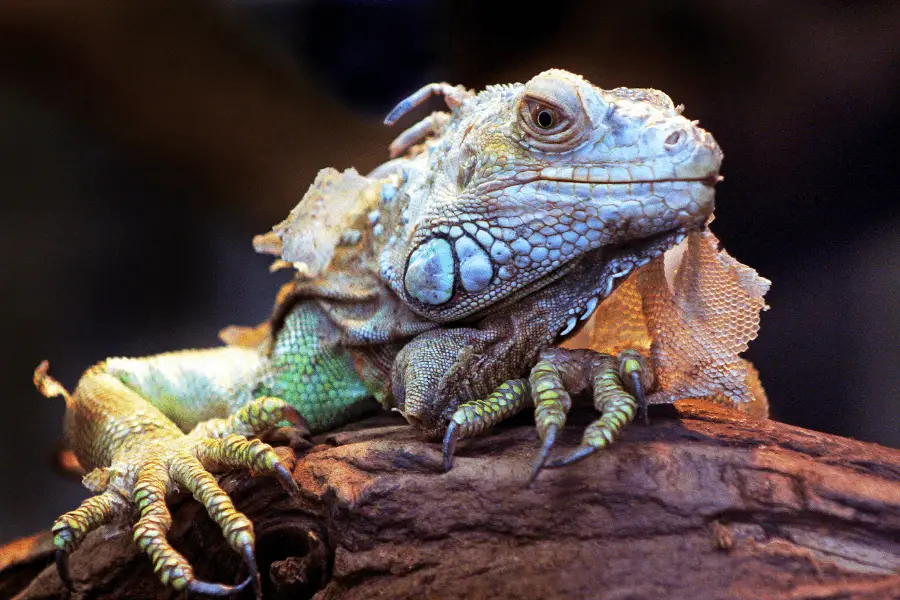
Please see my recommended pest control products for other pests
20) Will rat poison kill geckos?
Rat poison will have the same lethal effect on geckos as it does on rodents. Many species of gecko are carnivorous and also predators, this means that they are more likely to ingest a dead or dying rodent which has been exposed to rodenticide. This will likely kill the gecko itself.
Nowadays, many people keep geckos as pets and do feed them meat as part of their normal diet. So, it’s important to source your dead mice from a safe source and not to use rat poison as a form of pest control in your own home. If you let you gecko roam your home and it happens on a dead mouse or rat, it might ingest poison and die.
21) Will rat poison kill snakes?
Snakes can be killed by rat poison but are more likely to be exposed to it through their prey. When a rodent is dying from rodenticide they become extremely easy to hunt and an unwitting snake will then die from the poison within its food. Pet snakes could also die if their food source contains rodents killed with poison.
As with many wild predators, snakes are at risk of campaign against rodents with rat poison. Although some might argue that snakes are something we might want to kill, their deaths would actually be counterproductive to the campaign to exterminate a rodent population in your backyard. So, employ other means of killing rats like traps, and enable snakes to continue hunting these pests too.
22) Will rat poison kill frogs?
Rat poison will kill frogs if it enters their system, but poisoning is normally indirect. Larger frogs will eat meat, including mice, which could have ingested rat/mice poison themselves. As frogs tend to go for fresh and live food, a dying mouse would be easy prey. But poison isn’t a good method of pest control for frogs.
Like with many wildlife, most rat poisons have the ability to be lethal to them but it would be very hard to guarantee this method as a way of killing frogs en masse. The best way to get rid of frogs is to drive away their main food source, insects. Simply turning off lights at night can rapidly deter insects and in turn, reduce the local frog population.
23) Will rat poison kill cane toads?
The rat poison that homeowners use will kill toads if it enters their system, which usually happens indirectly like I mentioned earlier with larger frogs, who also eat mice who might have ingested rodenticide themselves first before getting eaten as toad prey. Toads can be a real pest for pet owners, but rat poison isn’t a good solution.
Many toad species are actually protected under law, so prevention is better than culling in most cases. You can buy preventative sprays and products which help deter both toads and their main insect food source. As with frogs, making your backyard as dark as possible after sundown can also help deter insects and the toads that hunt them.) Will rat poison kill iguanas?
Rodenticide versus Insects
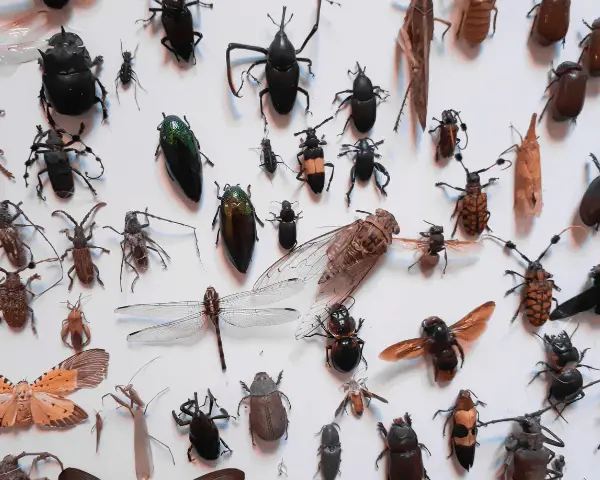
24) Will rat poison kill ants?
Being arthropods, ants will not react to rodenticide in the same way as other animals and it’s unlikely to kill them. In order to exterminate ants, you need to use specially designed insecticides that attack their nervous systems more effectively. This being said, you may often see ants on rat poison eating it.
As with many non-mammals in this list, ants just don’t have the same reaction to the most common rat poisons on the market and won’t die from ingesting them. There are many effective treatments to an ant problem however, both lethal and non-lethal and natural too.
25) Will rat poison kill wasps?
Sodium monofluoroacetate, often used as a rodenticide, will kill wasps if ingested in high enough quantities. However, research has shown that this isn’t a very effective way to control a wasp colony and other methods are much quicker and faster acting. A poweder based poison applied directly to a nest is the best way.
Your average rat poison isn’t going to kill a wasp, even though some experiments did find one active agent does work against them. If you have a wasp problem it’s far quicker to call in a pest control expert or to deal with the problem yourself. Attacking and removing the nest in a safe and controlled way is far more effective than relying on any rat poison.
26) Will rat poison kill cockroaches?
Rodenticide will not kill cockroaches, especially anticoagulant poisons, as they do not have the same blood clotting capabilities as rodents and other animals. Roaches may eat the rat poison, but the toxicity may not lead to death. Special cockroach poison would be far more reliable and effective.
Basically, roaches have a completely different physiology to the main target of rodenticides, rodents. There are many different types of rat poison and they all work differently, but none seems to work on cockroaches as effectively as other anti-roach methods.
27) Will rat poison kill flies?
Rodenticide will not kill flies. Anticoagulant poisons, like those found in rat poison never work as well on flies because they don’t have the same blood clotting capability as other animals and its toxicity might only lead them to eat it without killing them outright. Specialized insecticides would be more reliable when dealing with these pests.
You may see a swarm of flies on or around rat poison because it smells sweet, but they are very unlikely to die from it. It would be far better to use other anti-fly methods and insecticides which are specially designed to attack their vital systems.
Rodenticide versus farmyard animals
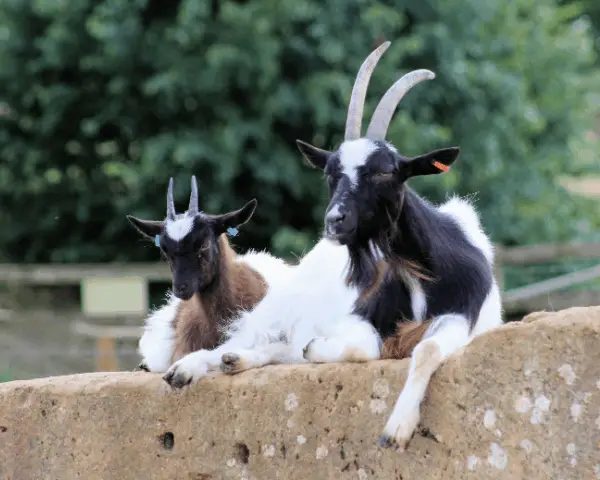
Please see my recommended pest control products for around the farm
28) Will rat poison kill sheep?
Though physically possible, sheep death from rodenticide is rare. This is probably because sheep would not be attracted to the sweet smell of rat poison bait and thus are very unlikely to seek it out. If you have sheep and they begin to show a lack of energy, are bleeding from their mouth or nose or have blood in their urine or feces, call a vet immediately.
As a form of euthanasia or hunting, rat poison would be both cruel and slow to work, so honestly apart from accidental ingestion I can’t think of a reason to use rat poison on sheep.
29) Will rat poison kill cats?
Rat poison is a significant danger to cats but not because they eat the bait themselves, being indifferent to its sweet taste, but rather from eating infected rats. As rats die from the effects of rodenticide they become easier prey to cats who will often eat them. This in turn infects the cat with the lethal poison.
If your cat becomes lazy or even seems a little depressed, it may have ingested rat poison in some form. Blood coming from the nose, mouth or in its urine or feces is another symptom of anticoagulant poisoning. If you think that it has eaten rat poison, get the cat to a vet asap!
30) Will rat poison kill horses?
Living in an environment susceptible to rodent infestations, horses are just at risk from rodenticides as mice or rats. Horses can accidentally ingest rat poison bait and begin to show symptoms within 2-5 days. Common symptoms of anticoagulant poison are lethargy, bleeding – both in the mouth, urine and excrement, trouble breathing and a distended abdomen.
When dealing with a rodent issue around your stables, it’s best to keep the bait traps out of the horses’ actual living quarters or to employ traps instead (where the horse won’t tread on it). If you observe any strange symptoms in your horse, especially blood, contact your vet immediately.
31) Will rat poison kill goats?
If a goat gets access to a rat poison they are likely to try it which will ultimately lead to their death. Most cases of goat death by rodenticide are accidental and due to poor planning when combatting a rodent infestation. Bleeding from orifices or lethargy are common symptoms of rat poisoning.
If you keep goats but still want to use rat poison on a pesky rodent population, make sure that you place the bait traps where the goats have no chance of reaching them. Otherwise, goats will definitely be attracted to the smell of the bait and have a try.
32) Will rat poison kill pig?
One of the common active ingredients in rat poisons, warfarin, can also be used to bait and kill pigs, particular feral ones. However, although rat poison does contain the right anticoagulant, a better more targeted porcine variety of poison, PIGOUT® feral pig bait, is a better choice. There are in fact several reasons not to use rat poison to kill pigs.
As with most cases of baiting an poisoning wild game, it’s best not to use poison in lieu of traps or shooting as you can’t be sure where the pig will actually die. Also, using poison as a culling method will lead to other animals ingesting the poison. The same can be said if you yourself plan to eat a pig that you have baited.
Rodenticide versus wildlife & game

Please see my recommended pest control products
33) Will rat poison kill a bear?
The chemicals found in rat poison can be just as lethal to bears as to rodents. Some species of bears also seem attracted to the sweet smell of most rat poison bait traps. However, the reality is that bears are more likely to die from consuming other animals who have eaten the poison directly.
It’s one of those answers which is really a question of possibility over likelihood. Bears can and probably do die from rodenticide but it isn’t an effective way to cull a bear population or protect your property. If your goal is to kill a bear, you need permission to do so from the local authority and then you should go for more traditional methods such as trapping or shooting.
34) Will rat poison kill bats?
Some species of carnivorous bats may be at risk of dying from rat poison when it has been ingested by their prey. For the vast majority of bats, however, death by rodenticide is unlikely as they will not be attracted to the bait itself nor the animals who will die after eating it. There are better methods of deterring bats if that is your aim.
Bats actually come in many different shapes and sizes and feed on different things. Some meat-eating bats do hunt on rodents, and it is these bats that are at most risk from secondary poisoning from rat poison. Generally though, most bats will be safe if you were to use rodenticide to control a rodent infestation on your property.
35) Will rat poison kill bandicoots?
Bandicoots can be killed by ingesting rat poison that they access through bait traps set out for rodents. They will suffer the same effects as other animals, either internal bleeding, organ failure, or brain swelling. Usually, their deaths are not intended and could be avoided by using alternative methods of rodent control.
As with many wild animals, bandicoots can be the victims of an attempt to quell a rodent infestation. Being a similar size to some rodents, a bandicoot can easily access a bait trap and will certainly die if they ingest enough of the poison.
36) Will rat poison kill deer?
Rat poison, especially more potent varieties, do kill deer in the wild. research has shown that many deer die from the effects of rodenticide though how they consume the poison is not clear. Being herbivores, it seems clear that they are attracted to the poison itself and ingest it directly.
Poison is not really an effective method of culling roaming wildlife such as deer, so many of the deaths from poisoning are likely to be accidental. Other methods of killing deer are legally sanctioned by many authorities, so check with your local representatives to find out how you are allowed to deal with a troublesome deer population.
37) Will rat poison kill gophers?
Rat poison is the most deadly method of gopher removal that still manages to be legal. Rat poisons work by killing rodents in the wild, and it seems like many gophers are killed this way too. Gophers may eat them directly or drink from their drinking water supply that has been poisoned.
Although not rodents, gophers have been targeted by companies who make poisons for them and actual rodents, all of which are in the range of rodenticides currently on the market. poisoning is a cruel but perhaps effective method for dealing with such an elusive pest.
38) Will rat poison kill stoats?
Stoats can be the secondary victims of rodenticide as they eat their prey, mice and other rodents, who may have directly consumed the rat poison. Like many other wild predators, there is a real epidemic of stoats falling prey to poison that wasn’t specifically put out for them. A poisoned rodent is much easier to catch and so stoats are quite vulnerable.
The use of poison to control rodent infestations is taking a heavy toll on animals such as stoats who are being victims due to their natural diet. When their food source is compromised it has knock-on effects for the entire ecosystem and is actually counterproductive to the initial goal of pest control.
39) Will rat poison kill fish?
Research suggests that fish are just as vulnerable to rat poison as other animals and will suffer similar symptoms. It is unclear, however, if fish would actually eat the poison and death would be more likely from leaching of toxins into their watery habitat. This is why rodent deterrents may be a better option.
I don’t think that anyone is trying to poison fish deliberately, but just like with other animals they may become the unintended target or rodenticide. If you have any concerns about using rat poison around your fish, then try an alternative way to control your rodent infestation such as a rat zapper.
40) Does rat poison kill opossums?
Opossums can be killed by rat poison if they ingest it in high enough quantities. The typical chemical ingredients in rodenticides will lead to internal bleed and death in Opossums. However, where these animals are normally found in homes is not the best place to poison them as they aren’t seeking food but shelter.
As with many other animals, they will suffer the same effects as rodents from the ingesting of rodenticides. Death isn’t instant and can take days depending on how much you get an opossum to eat. Some disadvantages to using poison included the fact that the animals normally die in the home, stinking it up or end up contaminating the food supply.
41) Will rat poison kill badgers?
Like many other mammals, badgers are susceptible to rat poison in the correct doses. Badgers will also feast on carcasses, so if a dead rodent has eaten poison this could easily introduce rodenticide into the badger itself. The use of poison as a culling method is not legal in most places and isn’t advisable either.
A badger would probably need a much larger dose than a rodent to die, but a mouse or rat may eat a lot of the poison before they eventually bleed out. This means that it’s more than possible that a badger may receive a large enough dose of the poison while scavenging. There have also been cases of people deliberately targeting badgers with poison.
Rodenticide versus other pests
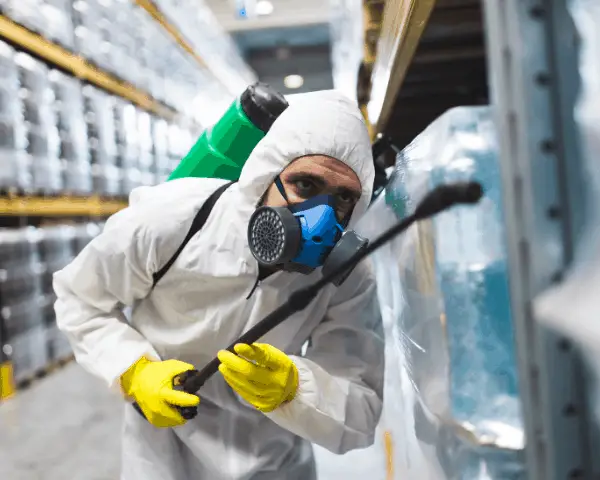
Here are my top picks for general pest control products
42) Will rat poison kill moles?
As Moles are insectivores they are unlikely to partake in rat bait which is laced with rodenticide. Poison can be used on moles but it has to be the variety that has been specially engineered for this non-rodent. Other more humane methods include trapping.
Since they only eat insects, it would be impossible for rat poison to make its way into their system. This means that moles are unlikely susceptible species of this treatment and will not die if exposed in the same manner as other animals which consume rodenticide-laced bait or feed on poisoned rodents such like mice
43) Will rat poison kill a possum?
An possum can be killed by rat poison if they ingest it in high enough quantities. The typical chemical ingredients found in rodenticides will lead to an internal bleed and death for the animal, but where these animals are normally found – homes may not be a good place to put out rat poisons as they aren’t seeking food so much as shelter.
As a result of eating rat poison, possum can suffer from the same effects as rodents. They may not die right away and it could take days depending on how much they ate. One disadvantage to using these poisons is that animals will often end up dying in your home which smells bad or contaminates our food supply due to their death there
44) Will rat poison kill hedgehogs?
Sadly, despite not being a rodent, rodenticides will certainly kill hedgehogs, particularly the anticoagulant form. Although most hedgehogs are insectivores, there is evidence that they will eat rat poison. So, in this sense, it is an effective treatment for this growing pest in many parts of the world.
It is true that in some places such as New Zealand, the hedgehog is finding new culinary treats and becoming a pest in its own right.
Mice and rats are the primary targets of rodenticides, but studies have shown that hedgehogs will eat them as well if they can find one in their habitat. So, if you don’t consider hedgehogs a pest, you may want to reconsider your approach to rat control.
45) Will rat poison kill skunks?
Skunks can consume rat poison either directly or through eating contaminated flesh which will lead to their deaths. As a form of pest control, poison wouldn’t be the best method to control a pesky skunk population, however. Traps and humane deterrents would be far more effective against this animal.
Obviously no one wants a skunk to be hanging around their backyard, but there are far better ways of dealing with skunks than using poison designed for another pest problem.
46) Will rat poison kill a fox?
Rodenticides can and do kill foxes in large quantities, but not normally due to them directly ingesting the poison. As hunters and scavengers, foxes are more likely to come into contact with rat poison within the rodents they eat, either as prey or carcasses. So as a direct method to cull fox populations, poison isn’t the most effective means.
Foxes can be a real nuisance for urban communities as well as rural ones. Not only do they cause havoc, but they can also target pets and bring diseases into your backyard. Deterring them is very important, but using poison just isn’t going to be effective.
47) Will rat poison kill a mink?
Rodenticide can kill mink but typically doesn’t due to them not directly consuming rat poison. Like other carnivorous hunters who often come into contact with poisoned rats while eating them, this isn’t always lethal; only when ingested does poison become dangerous–and even then there’ll still need to be sufficient exposure time for death to occur.
For most people, minks aren’t going to be much of a pest as they are probably helping you to combat the very rodent problem that the poison was put down for.
48) Will rat poison kill rabbits?
Rodenticides, particularly those containing compound 1080, are very effective at killing rabbits spread over vast areas. These are often used in places like Australia to target rampant rabbit populations and attack the animals vital organs. Compound 1080 has also been used as a way to protect livestock from predators.
Although considered a pet by some, rabbits are a nuisance for others. As these animals breed so quickly, conventional countermeasure may not be that successful and this is why many turn to poisons to kill them off.
49) Will rat poison kill coyotes?
Rat poison does kill coyotes who are likely to be exposed through the rodents they eat, either as prey or carcasses, and not directly ingesting rodenticides. As a means of combatting coyote populations, poison is one of the less effective strategies because it’s unlikely that the target animal will have contact with enough bait to die from it.
There are other rules and regulations when it comes to combatting a coyote problem, especially when it comes to killing them on your own property. (Please read more in this article)
50) Could rat poison kill a human?
If consumed in large and continuous quantities, rat poison could lead to death in humans. However, as the symptoms are very noticeable it is likely that medical aid could be sought before death occurred. many newer poisons are being developed which eliminated the risk to humans and non-targeted species.
Of course, I’m not writing this to give you any medical advice nor to give you an illegal option to do something that you shouldn’t be, but it seemed like a good end this article.
Whenever using rat poison, please be extremely careful where you use it and who can access it. Better still, try one of the many non-lethal options of pest control.
Sources
https://www.tandfonline.com/doi/pdf/10.1080/03014223.2002.9518287
https://www.ovocontrol.com/how-to-get-rid-of-pigeons/shooting-trapping-poisoning
https://www.kivitv.com/news/rat-poison-kills-50-crows-in-nampa
http://equine.ca.uky.edu/news-story/toxin-topic-anticoagulant-rodenticides
https://www.pigadvocates.com/pig-toxicities.html
https://www.ncbi.nlm.nih.gov/pmc/articles/PMC6221311/
https://www.sydney.edu.au/news-opinion/news/2015/05/26/what-is-the-best-way-to-kill-a-cane-toad.html
https://www.tandfonline.com/doi/pdf/10.1080/03014223.1991.10757969
https://www.gainesville.com/article/LK/20140704/News/604151932/GS
https://www.nbcnews.com/id/wbna40721227
https://www.quora.com/How-much-rat-poison-is-needed-to-kill-a-human
